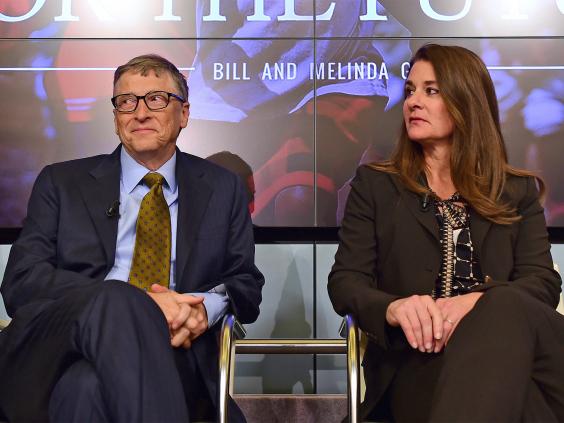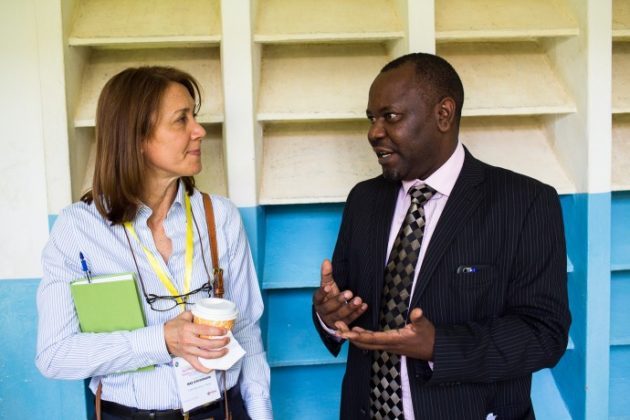
The Bill & Melinda Gates Foundation and the global health nonprofit PATH are working on a groundbreaking initiative in Africa that takes an unexpected approach.
The project is all about digital health, but doesn’t employ flashy new technology. And despite the essential roles being played by the two prominent Seattle-area organizations, they aren’t being publicly praised for the effort — in fact, they often get no recognition for it at all.
Yet this no-frills, behind-the-scenes project — the blandly named Data Use Partnership — has the potential for radically improving public health in the East African country of Tanzania and beyond.
The partnership is digitizing and connecting Tanzania’s healthcare system, linking a fragmented array of databases and information sources. A unified system could dramatically improve efficiency, accountability and cost savings for a country of 45 million people that struggles with infectious diseases including HIV/AIDS.
By helping health-care workers share crucial data in real time, the partnership could better target the dispersal of limited medicines where they’re most-needed, provide coordinated care for people with HIV/AIDS, and ensure that children are vaccinated in a timely manner, said those involved.
“This is something that has never been done before,” said Henry Mwanyika, PATH’s Tanzania Country Director for the project.

One of the novel features that has been key to the project’s success was the decision to put the Tanzanian government squarely in the driver’s seat. Government officials have been the ones deciding what they want the system to look like and setting priorities for technology investments. It’s a very different model from past approaches in which foreign donors and partners routinely took a prominent lead.
“What really makes me proud is when I see the government take total and full ownership of whatever we’ve done together,” Mwanyika said. “If it’s theirs, they will make sure it succeeds and succeeds beyond the lifetime of the project. That is critical when it comes to sustainability.”
The partnership is also a standout for working with the country’s existing technology, rather than foisting new platform into the system. It’s also unusual for its holistic approach, trying to stitch together an entire system.
Dykki Settle, PATH’s Digital Health Director, recalls the “wild west” days of tech-based global health investments. Outside organizations were foisting all manner of technologies on developing countries. At the peak in 2012, Settle said that Uganda alone had some 80 pilot projects underway, many duplicative and without the knowledge or consent of the government.
“People were saying, ‘I want to figure this out and I’m going to start experimenting’ and do this pilot and getting people excited, Settle said. “But then there were no real resources to make it sustainable and leave a lasting value in the country.”
The Data Use Partnership takes a wholly different approach. The partnership builds on a smaller project between the Gates Foundation, PATH and the Tanzanian and Zambian governments. The Better Immunization Data Initiative created digital registries in the countries that let health-care providers track the immunizations of babies and children, and ensure that vaccines are available when and where they’re needed.
Following the success of that effort and the trust that it built, the Gates Foundation decided to pursue the more ambitious partnership, creating a road map for building a widespread digital health system. Over a little more than a year, Tanzania and its American partners developed the road map.
“We can get lost in the lofty world of data, but this is truly about how do health systems perform better and improve human health,” said Marty Gross, a senior program officer for the Gates Foundation and lead for this project.
This summer the partners celebrated the announcement of a $15 million, 5-year catalytic grant from the Gates Foundation to fund the transition into the second phase of the project. The trio is looking for additional partners to help support the execution of the road map.
Path’s Settle said that an epiphany came to him a short way into the project. He was traveling to Tanzania as a tech leader and to help facilitate meetings there. But the collaboration was often awkward and less productive. He realized that his presence meant participants had to speak English, rather than Swahili, slowing the conversation. He came up with a simple solution.
“The best way to have success in the country is to stop going,” Settle said. On their own, the Tanzanian participants made great progress.
And that decision supports another tenet of the effort, that Tanzanians need to build their tech literacy and skills so they will have the IT expertise and capacity to run the system on their own.
“They should have their support down the street and not around the world,” Settle said.
The broader hope is that the effort can be replicated in other countries.
“The players are ready, the technology is ready, the infrastructure is ready — not everywhere, but increasingly — to allow us to move into this new space,” said Hallie Goertz, a digital health communications manager for PATH.
What’s also exciting, said project supporters, is the opportunity to put a connected system in place before too many incompatible technologies become set in stone — which could avoid some of the problems experienced in the U.S. where health-care providers struggle to share information smoothly between systems.
Source :- Geek WIre

Leave a Reply